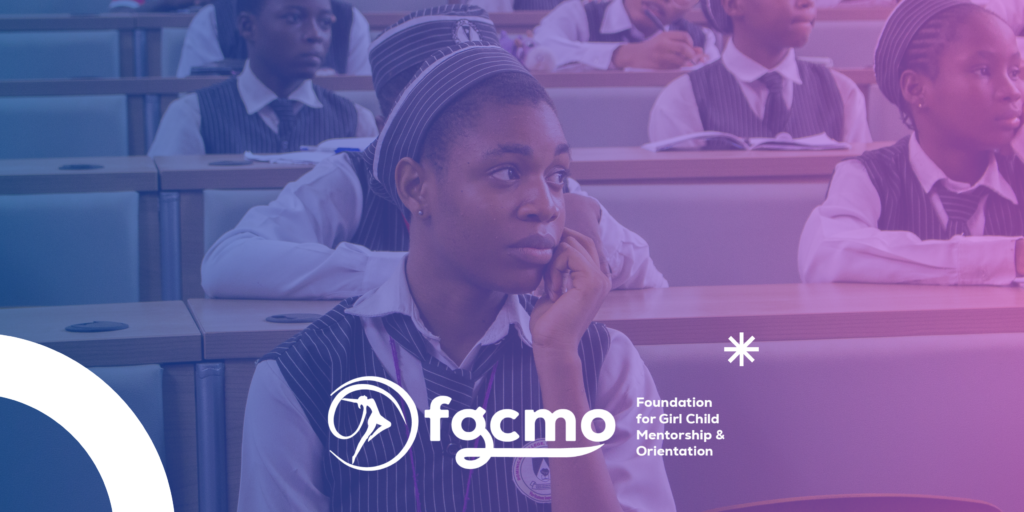
When we think of sustainable development, we often imagine clean energy, responsible consumption, and thriving economies. But what if the most powerful catalyst for sustainable progress is the empowerment of girls? Imagine a world where every girl has the education, resources, and confidence to contribute to society. That world is not only possible; it is necessary.
Empowering the girl child is not just a moral imperative—it is a strategic investment that can uplift families, communities, and entire nations. Here’s why girl child empowerment is the missing link to achieving global sustainable development goals (SDGs).
Breaking the Cycle of Poverty
When girls are empowered with education and skills, they break free from the chains of generational poverty. Educated women are more likely to secure better jobs, earn higher incomes, and invest in their children’s health and education. According to UNESCO, each additional year of schooling for a girl can increase her future earnings by up to 20%.
Imagine what this means for communities where poverty has been a persistent reality. An empowered girl becomes an empowered woman who lifts her family out of poverty, sparking a ripple effect of prosperity that can transform entire regions.
The Power of Education – Meet Kemi
Kemi grew up in the Makoko slum community in Lagos, where education for girls was often overlooked. Through a mentorship program and the support of organizations focused on girl empowerment, Kemi was able to attend school. Her education didn’t just stop at the basics—she was introduced to STEM through a special program designed for girls like her.
Today, Kemi works as a software engineer for a major tech firm, developing applications that solve real-world problems. She supports her family financially, helps pay for her younger siblings’ education, and mentors’ other girls in her community. Kemi’s story is a testament to how education can break the cycle of poverty and unlock limitless potential.
A Healthier Future for Everyone
Empowering girls leads to better health outcomes, not just for them but for entire communities. Girls who receive education are more likely to marry later and have fewer, healthier children. They are also better informed about nutrition, hygiene, and disease prevention.
Take teenage pregnancy, for example. In many underprivileged areas, lack of education leaves girls vulnerable to early pregnancies, trapping them in a cycle of poor health and limited opportunities. Empowering these girls through mentorship, education, and health support breaks this cycle and paves the way for healthier generations.
The Cost of Lost Potential – The Story of Chidimma
Chidimma, a bright and ambitious girl, grew up in a rural village with dreams of becoming a nurse. Unfortunately, her family believed that education for girls was a waste of resources. At the age of 14, she was married off to a man much older than her. Without education, Chidimma became trapped in a life of early motherhood and financial dependence.
Her health suffered due to early pregnancies, and her children faced the same cycle of poverty and limited opportunity. Chidimma’s story highlights the tragic cost of denying girls education—a cost that extends beyond the individual to entire communities and future generations.
Accelerating Economic Growth
Imagine the untapped potential that lies in girls who are denied education and skills. When girls are empowered to participate in the workforce, economies flourish. The World Bank estimates that gender equality in the workforce could boost global GDP by $28 trillion by 2025. That’s not just a statistic—it’s a wake-up call.
Countries that invest in girl child education and empowerment unlock a treasure trove of talent, innovation, and creativity. From science and technology to arts and leadership, empowered girls drive economic growth in every sector.
Climate Action Through Girl Empowerment
Empowered girls are not just future leaders; they are future environmental stewards. Education and mentorship programs on climate change equip girls with the knowledge and skills to champion sustainability initiatives in their communities.
Girls who understand the importance of environmental conservation can lead projects on reforestation, waste management, and sustainable agriculture. These efforts, when multiplied across communities, make a significant impact on climate resilience and environmental protection.
Building Stronger, More Peaceful Societies
Empowering girls promotes social stability and peace. When girls are educated and included in decision-making processes, they contribute to building societies that are more equitable, just, and peaceful. Studies show that countries with higher levels of gender equality experience fewer conflicts and better governance.
By investing in the empowerment of girls, we are investing in leaders who will advocate for human rights, justice, and community development
The Road to Sustainable Development Begins with Her
Girl child empowerment is not an isolated goal; it is the foundation upon which sustainable development stands. From ending poverty and hunger to achieving gender equality and combating climate change, the empowerment of girls touches every aspect of the United Nations’ Sustainable Development Goals.
Organizations like the Foundation for Girl Child Mentorship and Orientation (FGCMO) are on the front lines of this mission, providing mentorship, education, and essential resources to girls in underserved communities. Through initiatives like leadership training, self-esteem development, and STEM programs, FGCMO is shaping a future where every girl has the opportunity to thrive.
When we empower girls, we empower humanity. If we are serious about building a sustainable future, let’s start by investing in the dreams, potential, and rights of every girl. After all, she is the catalyst for a brighter, more sustainable tomorrow.
Join the Movement
Be part of the change. Support initiatives that empower girls. Mentor, donate, advocate—every action counts. Because when girls rise, the world rises with them.
My name is Naomi Onwuka. I am a Girl-Child Rights advocate.